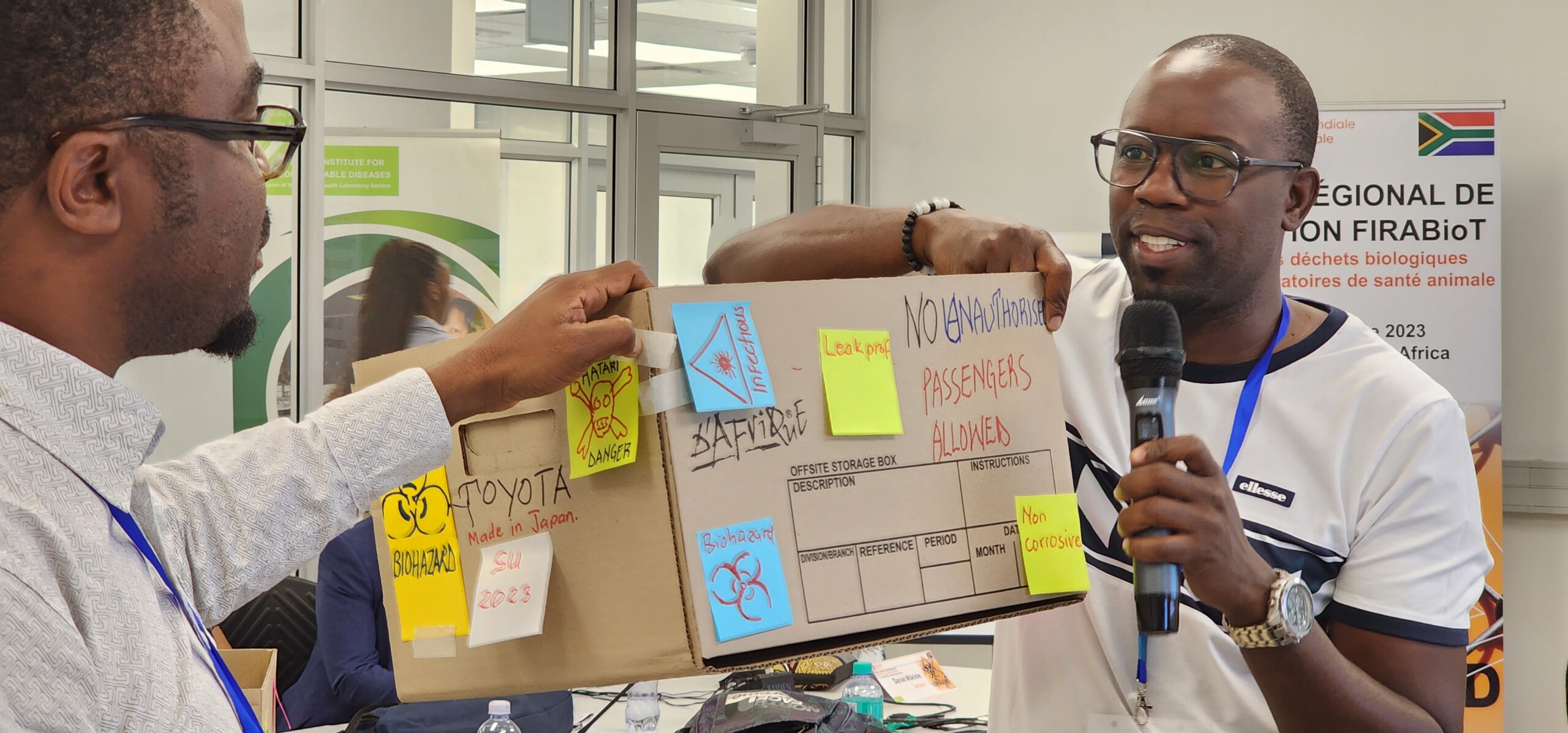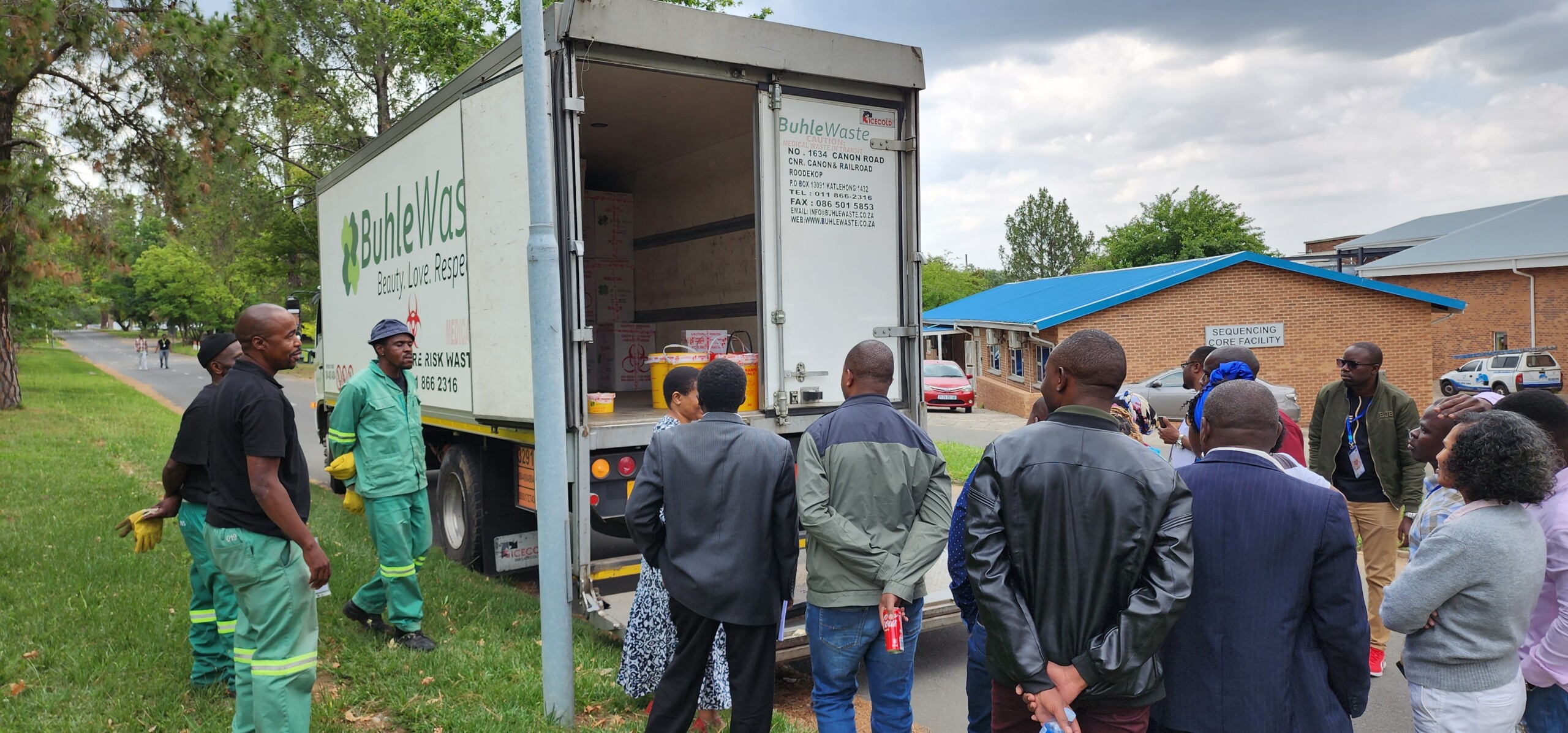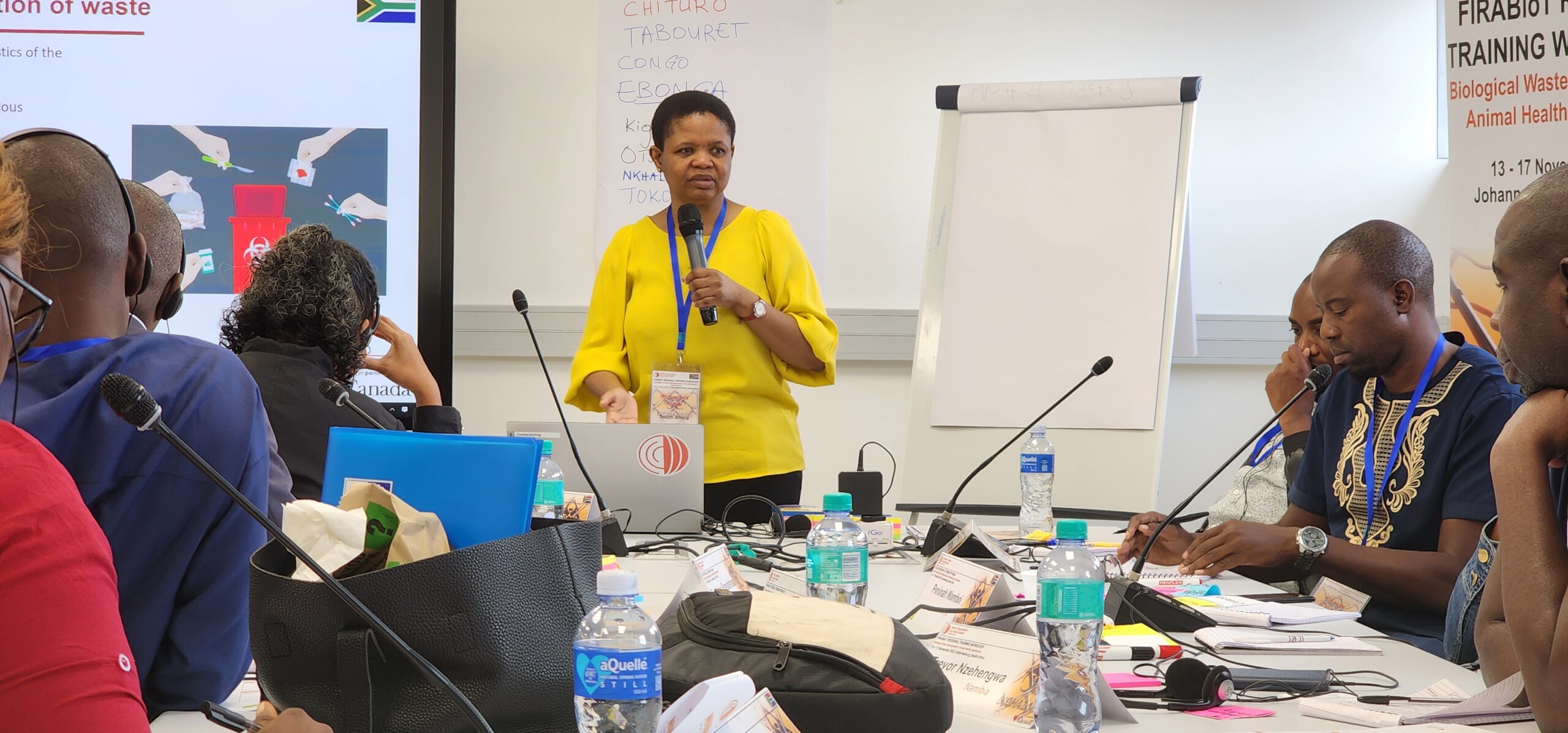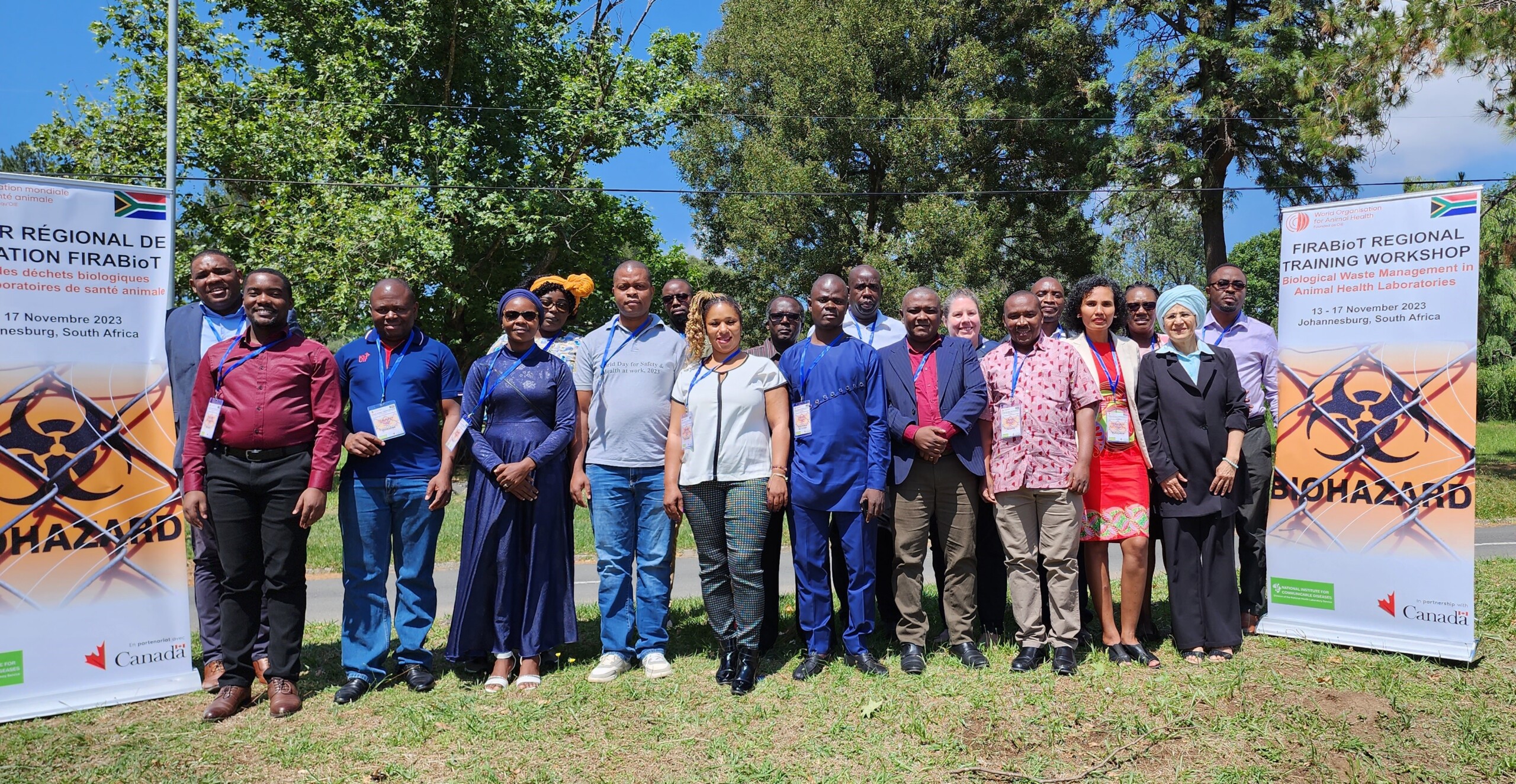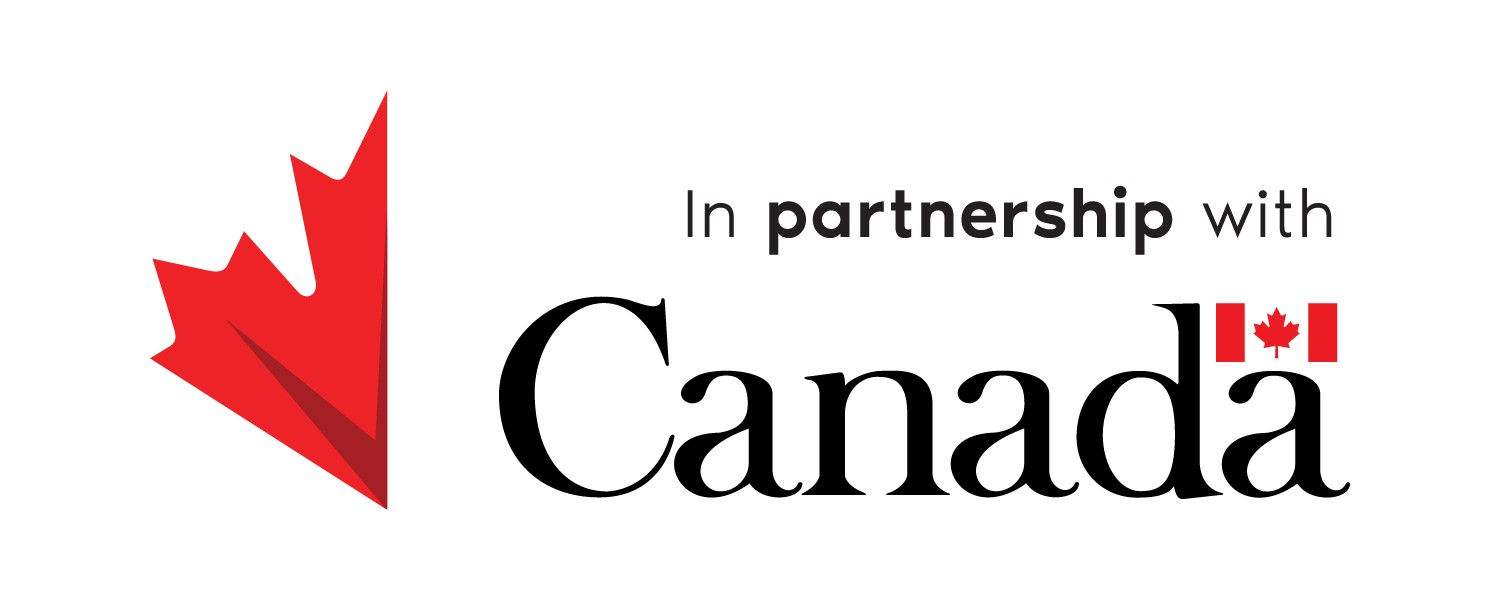
The World Organisation for Animal Health (WOAH) recently conducted a regional training on biological waste management in animal health laboratories. The participants included laboratory personnel from 7 of the 9 beneficiary countries of the Fortifying Institutional Resilience Against Biological Threats (FIRABioT) project: Congo, Kenya, Madagascar, Malawi, Namibia, Tanzania, and Zimbabwe.
The training, which took place from 13-17 November 2023, was hosted and organised in collaboration with South Africa’s National Institute for Communicable Diseases (NICD), a Regional Diagnostic Demonstration Center, and the Africa Centres for Disease Control and Prevention (Africa CDC)’s Regional Center of Excellence on Biosafety and Biosecurity for the Southern Africa region in Johannesburg, South Africa.
Participants looking at how biological waste is labelled and transported at the NICD campus. Picture © I. Busuulwa (woah) 2023
The objective of the biowaste management training was to provide participants with the necessary knowledge and practical skills for the safe and effective handling and management of biological waste in veterinary laboratories. The training focused on developing and implementing a biological waste management programme, covering aspects such as identification and characterisation, storage, transportation, and treatment of waste. Facilitators included Zibusiso Masuku (Head of the Biosafety and Biosecurity Division at NICD), Mmashela Kgole (Manager Waste Assurance at South Africa’s National Health Laboratory Services [NHLS]), and Ts’aletseng Siimane (Lecturer in Environmental Health Sciences at the National University of Lesotho).
Ms. Mmashela Kgole (Manager Waste Assurance at South Africa’s National Health Laboratory Services [NHLS]) facilitating the biological waste management training. Picture © I. Busuulwa (woah) 2023
During her opening remarks, Dr. Natalie Mayet (Deputy Director of NICD) praised the training as a manifestation of the One Health approach, emphasising that it would significantly contribute to building the one health muscle for tackling biothreats. Ms. Amy Galigan, Counsellor (Political and Economic Affairs) at the High Commission of Canada in South Africa, representing Global Affairs Canada, underscored the importance of a coordinated effort, particularly at the frontline, for an effective and robust response to biothreats. She highlighted that the biowaste management training prepares animal health professionals, often at the frontline of dealing with zoonoses, to effectively contribute to this effort. She highlighted that the Government of Canada considered it a privilege to ensure that the participants had the necessary knowledge and skills for their work.
Amy Galigan - Counsellor (Political and Economic Affairs), High Commission of Canada in South Africa
This biological waste management training is one of the four areas of specialisation of Africa CDC’s Regional Training and Certification Programme for Biosafety and Biosecurity Professionals. As part of this program, the trainees underwent a certification exam at the end of the training. Successful candidates will be certified as African Regional professionals: Level 1 Biological Waste Management. The certified professionals will then proceed to Level 2, which includes the implementation of a biowaste management project under the mentorship of an Africa regional subject matter expert.
The regional biological waste management training is one of the activities under the FIRABioT project, funded by Global Affairs Canada’s Weapons Threat Reduction Programme – in support of the Global Partnership Signature Initiative to Mitigate Biological Threats in Africa.
